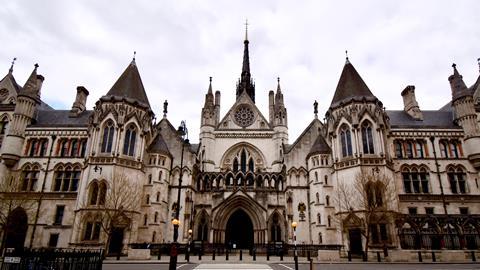A man convicted of possession of indecent images, who was inadvertently leaked private material from an unrelated case by a law firm, has been found in contempt for refusing to ensure the material was deleted.
In The Chief Constable of Kent Police & Anor v Daryll Sturgess Taylor, Mrs Justice Steyn DBE found that Darryl Taylor was in contempt for breaching two parts of a court order to arrange for the leaked documents to be removed from his devices.
National firm Berrymans Lace Mawer LLP – since merged into Clyde & Co – had jointly applied for the committal order after sharing video files with Taylor on another case. The files were subject to an anonymity order.
BLM had been acting for the chief constable of Kent Police in a claim from Taylor for damage alleged done to his front door by officers coming to search his property. Taylor was subsequently convicted for possession of indecent images of children and he was jailed for nine months. His claim against the police failed, but in the build-up to a court hearing BLM had inadvertently shared videos of the arrest of a vulnerable young person separately suing Kent Police.
Taylor downloaded the material and then refused to cooperate with BLM’s requests to delete the copies. The court heard that at one point he demanded several thousand pounds to comply.
Mr Justice Saini made the first court order against Taylor in March 2022, requiring that he attend the BLM office on a prescribed date to allow an independent IT expert to ensure files were deleted from all his devices. When the firm emailed Taylor with a copy of the order, he replied: ‘Fuck off and die.’
A second order followed, after which the firm offered a fresh undertaking to provide an independent expert to assist. Taylor did not respond or attend the firm’s offices as requested.
At a contempt hearing last week, the court heard that Taylor, who was neither present nor represented, has said the computer used to download the protected material is no longer in his possession. He has offered to give access to his phone through an independent party.
The judge upheld two grounds of contempt, namely that Taylor did not attend Clyde & Co’s offices as he was supposed to, and he had retained the police videos. The judge added: ‘The failure was deliberate rather than merely inadvertent; and the defendant knew that he was failing to attend the claimants’ solicitor’s office and failing to take, and permit access to, his media and devices in accordance with the terms of the orders.’
The hearing was adjourned for sentencing to allow Taylor time to put forward matters in mitigation.































